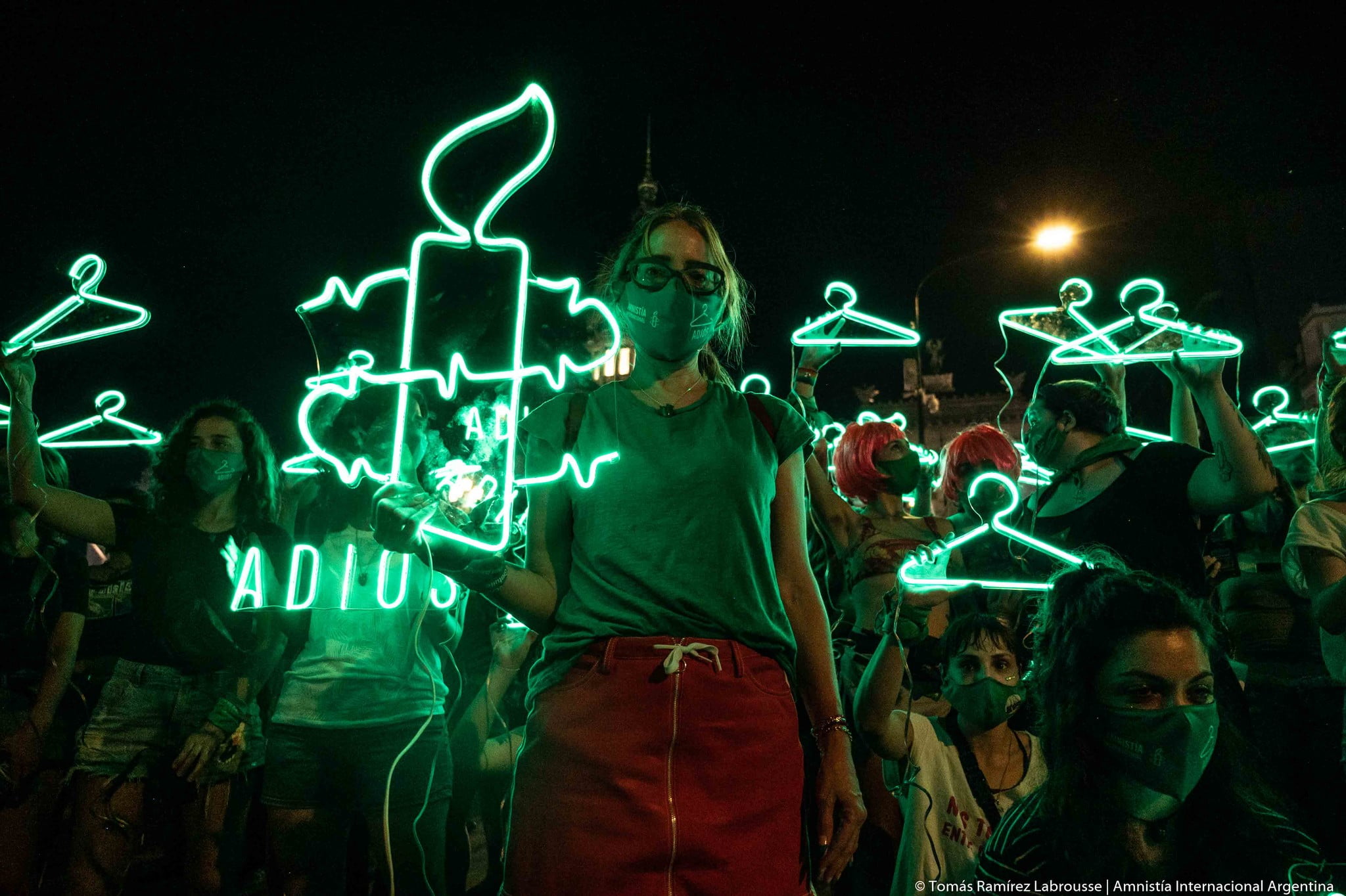September 28 marks International Safe Abortion Day. It is the first time Australia has celebrated the day with all states upholding the right to safe and legal abortions, with South Australia only decriminalising abortion this year. Internationally however, reproductive rights remain under threat, as evidenced by the US State of Texas’s recent law outlawing abortion after 6 weeks.
What is International Safe Abortion Day?
International Safe Abortion Day takes place on the September 28 every year. Since 1990, the date has been marked in Latin America and the Caribbean to demand the decriminalisation of abortion, to provide safe and affordable abortion services and to end the stigma and discrimination of people who choose to have an abortion.
In 2011, Women’s Global Network for Reproductive Rights took these goals to a global level for solidarity in recognising that access to reproductive rights continues to be a struggle for people around the world. The day calls for action in fighting for reproductive and abortion rights on a global level.
Is abortion a human right?
Under international human rights law, everyone the right to healthcare, the right to equality and non-discrimination and equal protection under the law, and the right to be free from violence, discrimination, and torture or other ill-treatment.
Amnesty International recognises access to safe abortion as an essential component in ensuring the protection of each of these rights.
Human rights are universal, indivisible and interlinked. This means that sexual and reproductive rights, including the right to abortion, are fundamental to the full realisation of all of our human rights.
The impact of COVID-19 on access to safe abortions
COVID-19 has only highlighted the need for access to safe abortions which are easily accessible, without stigma and affordable. While lockdowns, quarantines and travel bans are essential for reducing the risk of COVID-19, the strain on healthcare systems and limitations on travel have delayed access to safe abortions.
It is vital that alongside the use of telemedicine and pharmacies as important access points for safe abortions during the pandemic, that clinic-based in-person care remains a priority when it is safe to do so.
A year in abortion rights around the world
Over the last year there have been a number of wins for abortion rights around the globe.
In October 2020, South Korea’s government announced draft legislation that would permit abortion up until 14 weeks and in some circumstances up to 24 weeks.
In December 2020, Argentina’s congress legalised abortions up to the 14th week of pregnancy, previously abortions were only permitted in cases of rape or when the pregnant person’s life was at risk.
In February 2021, Thailand’s parliament gave pregnant people full abortion rights in the first trimester of their pregnancy.
In March 2021, South Australia formally decriminalised abortion.
In April 2021, Ecuador’s High Court decriminalised abortion in cases of rape, a major step forward in a predominately Catholic country.
In September 2021, Mexico’s Supreme Court ruled that criminal persecution for accessing abortion was unconstitutional in the northern state of Coahuila.
However, there is still far to go as in the last year we also saw mass protest sweep Poland after their constitutional tribunal ruled abortions due to foetal defects as unconstitutional.
In Texas we also saw a new law pass banning abortion after 6 weeks, a date before many people even realise they are pregnant.
These changes prove there is much work to be done to secure gains in abortion rights legislation to prevent backsliding, and to continue demanding existing laws decriminalise abortion.
What about abortion rights in Australia?
In Australia the right to abortion is legislated differently in each state and territory. Currently abortion is decriminalised in all states and territories, however each law provides differing level of access to safe abortion.
Abortion was decriminalised in South Australia in 2021, following years of campaigning from people in South Australia.
What is Amnesty is calling for?
Being able to make our own decisions about our health, body and sexual life is a basic human right.
But many pregnant people around the world are still unable to access safe and legal abortions, and have difficulties accessing contraception. In several countries, people who want or need to end pregnancies are often forced to make an impossible choice: put their lives at risk or go to prison.
Amnesty International recognises abortion, provided in a manner that respects pregnant persons’ human rights, autonomy, dignity and needs, as the right of anyone who can become pregnant.
Instead of viewing abortion access simply as a health issue, or one that affects only certain people, Amnesty recognises that safe abortion access is essential for realizing the full range of human rights and achieving gender, social, reproductive and economic justice.
Amnesty International continues to call for universal access to safe abortions for all people who need them. We are calling on governments to fully decriminalize abortion, and ensure universal access to safe abortion services to all people who need them. This should include removing abortion from criminal laws, and an end to punishment of people who obtain, provide or assist with the provision of abortion.
Read more about Amnesty International’s Abortion Policy here.
